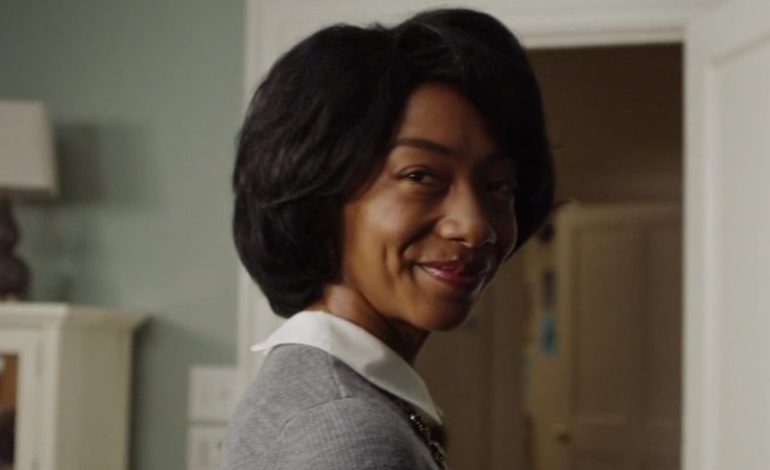

Of 109 films released into theaters by major studios in 2017, only 14 films had LGBTQ representational characters. This totals to 12.8% of characters being lesbian, gay, bisexual, transgender, or queer, which is a huge drop compared to the 18.4% of characters represented in 2016 films. Since GLAAD began issuing annual reports of representation in major Hollywood films in 2012, 2017 has shown the lowest rating of all.
LGBTQ characters got less than five minutes of screen time in half of the films that did have representations.
Surprisingly, as a silver lining to the glaring issue at hand, thanks to Get Out‘s Georgina (Betty Gabriel) and her lesbian past, racial diversity of LGBTQ characters increased. 16 of the 28 total LGBTQ characters were racially diverse. That is a total of 57% of overall characters which shows a whopping 37% increase from 2016.
Gay men make up the vast majority of characters represented in 2017, making up 64% of gay characters in films. While both lesbian and bisexual characters made an increase in representation as well, there were absolutely no trans characters represented in any of the studied films.
The highest ratings from GLAAD’s yearly Studio Responsibility Index came to a disappointing “insufficient” with zero “excellent” or “good ranking” grades. Universal, for their inclusion of Cynthia Rose (Ester Dean) in Pitch Perfect 3, and Fox including a gay couple in Alien: Covenant received “insufficient” ratings while Disney and Sony were “poor.” The lowest ratings were handed to Warners and Lionsgate with “failing” grades.
Other specifically faulted movies included Thor: Ragnarok and Wonder Woman for ignoring queer characters found in their source material.
The report does not include studio specialty labels like Sony Pictures Classics and Call Me By Your Name as well as Fox Searchlight’s Battle of the Sexes. Of the divisions, along with Universal’s Focus and Lionsgate affiliate Roadside Attractions, 11 of 40 films, 28%, included LBGTQ characters. This shows an 11% increase from 2016.
GLAAD CEO and president Sarah Kate Ellis hopes that 20% of characters will represent the LGBTQ community by 2021, and will represent 50% by 2024.
